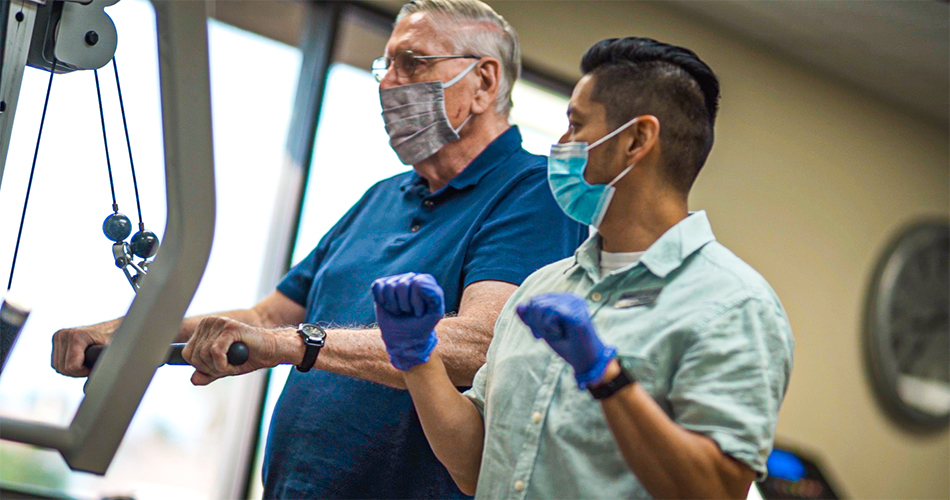Pre Surgery Physical Therapy
Many patients we talk to are not aware that along with post-surgery, pre-surgery physical therapy is a great way to jump start your healing.


While almost all patients have heard of post surgery therapy, not many have heard of preoperative therapy, also known as prehabilitation or prehab. Prehab shares many of the same goals as post surgery rehabilitation such as shortening the overall recovery time and reducing pain during recover, however it does this by preparing you and your body for the surgery and recovery process ahead of time. Athletes will often participate in prehab physical therapy before a grueling sport event that is going to take a toll on their body to help prevent injury due to weak muscles or connective tissue. In the same way, prehab works to lessen the effects of surgery while helping to avoid unnecessary injuries.
Prehab can also be useful for patients that are having surgery around an area that is already weakened. Preoperative physical therapy works to strengthen the surgery site and surrounding areas to help you gain strength, flexibility and range of motion in the joints and muscles so that you head in to surgery in the best possible condition. The post surgery recovery process is hard enough without having pre-existing weakness or motion issues to hold you back.
At Optimal Therapy, we think that preoperative therapy is ideal for any patients with surgery in the near future. Unfortunately many insurances don’t cover the costs of prehab physical therapy. While we hope that this will begin to change, we still have many patients that opt for prehab because of the benefits associated with the recovery process and because it provides them with the opportunity to have a role in controlling their own recovery.
Prehabilitation or prehab physical therapy is a proactive therapy that uses physical therapy, Neuromusculoskeletal rehab and strength conditioning techniques to address any preexisting deficits in strength and range of motion while working to improve post-operative recovery time and pain.
Typically, prehabilitation will begin 6-weeks before your scheduled surgery, however even as little as 2-weeks has shown to have a positive effect. We create individual prehab plans so that no two are the same, but many of them will take advantage of similar strategies. Each preopterative physical therapy plan begins with a thorough evaluation by one of our specialists to understand a patients current condition, establish a baseline for “normal” movement, and to understand individual goals and considerations. Once a prehab strategy is created, your specialist will work with you to prepare you both physically and mentally for the surgery and the recovery process. While rehabilitation is crucial, adapting a prehabilitation program can make a huge difference in post-surgery pain level and recovery time.
Not all Preoperative therapy or prehab plans share the same goal. While they all focus on improving overall strength, range of motion and muscular-skeletal health, the end result of those improvements can vary. When it comes to prehab, we typically see three common goals:
It is not uncommon that a patient might not be in proper condition to achieve the best outcome from surgery. This can be the case in things like joint replacements or ACL surgery where the surrounding muscles and joints are not prepared to take on the added stress once the surgery is conducted. In these cases, we work with patients to improve any strength or range of motion deficits to improve surgery results and the recovery process.
One of the most common goals in prehabilitation is to strengthen either the surgery area, the area of the body that will need to compensate after surgery or both. By ensuring that your body is in the best condition possible to both handle the surgery and function during recovery, patients can often reduce recovery time and pain while maintaining a higher ability to conduct normal, day-to-day activities.
Another great reason to look in to prehab physical therapy is that in some cases, physical therapy can be an alternative to surgery. While there are many cases that surgery is the only option, we have seen many patients reduce or even eliminate the symptoms that were the initial cause for seeking out surgery. If you are interested in pursuing alternatives to surgery, let your specialist know so that this can be considered when creating your plan.
While there are many physical benefits to prehab, one of the biggest benefits we see in patients is mental and emotional. Part of the prehab process is talking through what to expect after surgery, what to expect from the recovery process and what to expect as far as pain and discomfort. Knowing these things ahead of time as well as taking steps to improve them not only provides patients with confidence, but it also allows them to take an active role, providing them with some control over the outcome of the surgery and recovery process.
There are several benefits to completing a prehab plan with a physical therapist at Optimal Therapy:
If you want to skip the wait, you can reach our scheduling team Monday through Friday from 9am – 5pm.